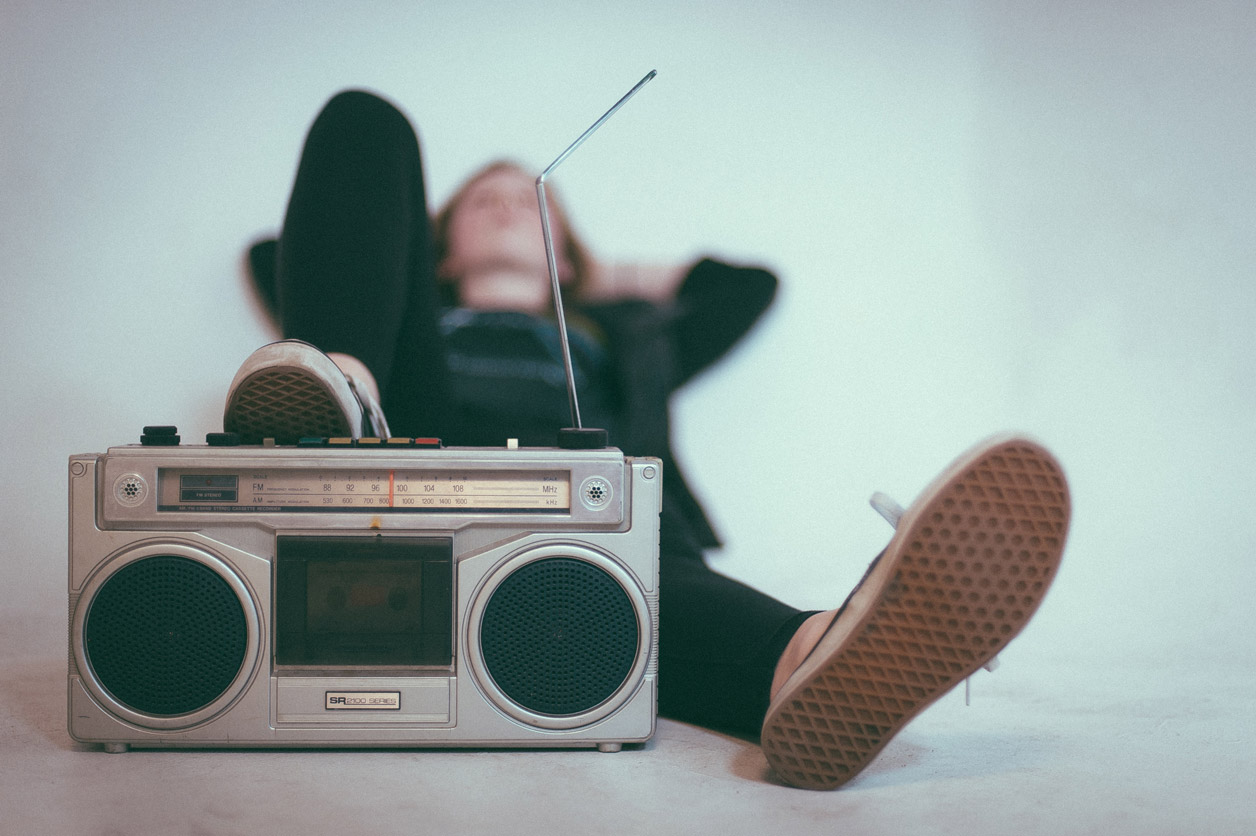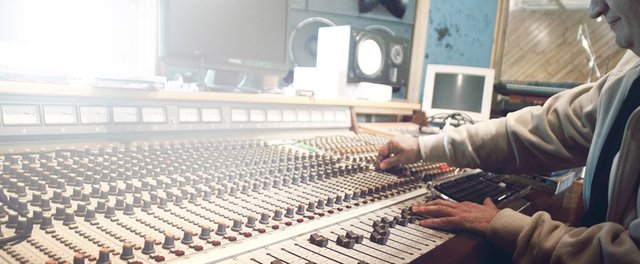Music, sound and the mysteries of perception
Music and perception
Music makes us move, dance, cry or dream. Music amplifies our emotions, our strengths. Have you ever thought about what happens inside you when you listen to the music you like?
As a Sound Engineer I deal a lot with music every day, and I find fascinating how I changed the way I listen and perceive just to be able to make clinical and definitive decisions about a song.
This article explores perception from the point of view of an insider, and it is aimed at the curious mind, whatever your inclinations and likes might be.

Two moods
So, let’s cook our dish. The simplest distinction I can make in the way I listen is between two main different mindsets or attitudes:
- Listening to music as most people do, letting myself be carried away by the emotions in a way that moves me, shakes my body and soul
- Listening in a cold, detached attitude, which is the analytical, technical way.
Of course, there is no switch in my head; there are many gradients of different feelings and different facets of perception that I’ve learned to recognize, and I’m splitting them into two pieces for the sake of simplicity. So, if you take into account the subjectivity of our emotions, and the infinite gradients that make up our feelings… then you’ll understand that each of these two moods is made up of infinite perceptions.
Perspective planes
Now stop a moment and compare my simple distinction above to our other senses and perceptions. Think you are looking at a picture; the first impression you got would be the feeling it transmits to you. After a moment then, you would probably start to examine the smallest details and make assumptions about how that picture has been made.

You do this all the time, to the point that our perception is probably the sum of at least two main mindsets and of all the gradients in between. Your mind always has at least two pictures of something, the macro and the micro. It’s like being splitted in two and watching your home from two different points of view at the same time: from above, upon a mountain maybe, where you make a map of its place in the world; and from the inside, where you discern the most familiar details.

This happens for all your senses; if you close your eyes for a moment and then try to recognize a face with your touch, for example, you obviously start your interpretations from the macro to the micro, from the shape of the head to that aquiline nose. But in this case, the analogy is not so obvious, also because it’s difficult to associate emotions and feelings to our touch only: most of the time, sight has more intensity. The only sight of a face, even an unknown face, can communicate us feelings that touch simply can’t. There are exceptions of course, things in which touch complements or surpasses sight (think about sex), but still this is a matter of fact.
Why sight is our most important sense
The reason lays in what we have learned to regard as important, and I mean in the course of evolution, through the eras, for survival; sight got the first place ever, then probably came sound, touch, smell, taste. Sight allows you to know what surrounds you, to orientate and discern paths and dangers with precision. Sight is the fundamental quality of a hunter. Smell is another, but it’s not quite as evolved in humans as it is in felines for example. Sound comes into play only when our eyes can’t tell the truth, when a predator is hiding in the bushes… and so on.

But there’s another reason why I can tell that sight wins the first place. And it’s because it has the most deterministic quality for us. And here I come to one mysterious point: we only need to see a table to make the assumption that a table is (exists) in a room. I grant you, we would be absolutely sure that this assumption is true... Unless maybe we purposefully altered our perception, of course…but even in the case of hallucinatory experiences, there’s always been some veiled feeling of certainty that follows us. Such is the power of sight.
The only way we could break our certainty would be to have someone else not corroborating, so telling us “No, there is no table”, probably causing panic in us and the legitimate feeling that someone (me or you?) is gone mad. Fortunately, that does not happen every day…but it happens in very small degrees, even between factions and politicians, when one “chooses” what to see. A poor man can be “someone living in misery” or “someone to exploit to the bone”. You can choose what to see. But, at least, you know for sure that that poor man exists, because you see him in front of you.
What about sound
Now you will learn a truth that every Sound Engineer, or musician, comes to learn with experience and many years of practice and failures: our perception of sound is not as deterministic as we would like. It doesn’t work like sight does. It shifts so frequently, to the point we may hear something that it’s not there, because it’s not measurable or because no one else hears it, or even because we, ourselves, may even cease to perceive it one minute, or day, or month after.

This happens to a certain degree, of course. And it happens less to a trained ear. But it’s fascinating how, again, we have two opposite points of view. Our perception is the sum of the two (a third point, a third eye, if you like trinities and symbols). Maybe I’ll write more about it.
In this case, these two perspectives are objectivity and subjectivity.
Meaning that, compared to the sight of a table, we are more likely to perceive in a song some objective, measurable, qualities and phenomena that no one would question (distinct instruments playing, notes, rhythm patterns etc.) and, at the same time, some subjective things (emotions), or just false perceptions (...as an example, this happens many times among musicians that try to judge technical qualities of sounds, intensities and/or timbres).
Training
During the last +10 years making music (for fun first, for work then), I have learned to shift and manipulate my perception in order to achieve different goals. One is to keep lucidity after many repeated listening sessions; another is to keep the highest degree of objectivity in my perception of sound and music, knowing when to release the tension and shift back to that subjective state where I get carried by the music and the emotions.

This is a special training that any aspiring Sound Engineers MUST go through with a lot of care and will. This so-called “ear training”, allows us to fixate our perception of sound and strengthen our abilities to discern objective qualities, to be able to work on a common ground and make assumptions with the highest degree of certainty that our evolution permits. But still, there are many measures one must take to efficiently manipulate perception. Like unexpected changes in the listening environment, frequent pauses, and so on. We play tricks to ourselves in order to not be tricked by our limits.
And so…
Music, like art in general, is a form of communication and expression of the self, of the emotions we feel and the life we live. For a song to be successful there must be some balance of both the objective and subjective nature of sound, while privileging one or the other would end up turning in something that may not be evocative enough, or that just sounds rude, harming to the ear.
The Artist (the musician who makes the song) and the Sound Engineer (the technician who takes care of the sound) are an example of two figures in the music field which represent this contrast: one has to put as much attention as he/she can in the communicative part of it, and the other has to do the same in the objective, technical side of things, to ensure that every sound is perceivable as it should… But as I anticipated above, none of them must forget the other side of the medal. That's why great Artists care about the formal and technical quality of their communication as much as great Sound Engineers take care of the subjective quality of the music, and its ability to move and shake one’s soul. Don’t be too clinical, but only as much as necessary. It’s all about Yin and Yang and their complementarity.

Of course, then there are other figures in the middle, such as Producers. But you get the point. The point is how perception can shift, and how easily. Knowing that also means taking measures in order to make it shift or fixate at will. And the best suggestion that I find pertinent to music (but not only) is to trick oneself, to make yourself changing habits and changing perspectives. That means, making pauses during listening sessions. Calculating your distractions, or just letting them happen randomly.
Put yourself in different, new situations. Explore. But only do this at the appropriate time.
One last word
My curiosity brings me to ask what other applications there might be outside of the music field, and I want to suggest you ask yourself the same question. If perception can be manipulated, not for pleasure, but for useful tasks, how many of you ponder about this possibility, or actually make use of it in your life or work? Have you taken in consideration that a sudden change of perspective may be your next best move?
LET ME KNOW!
Thank you for sharing this. I always wonder how music production work. Very comprehensive.
Thank you for your support!
Your post received an upvote by the @illuminati-Inc music curation team and its partner @curie.
You may consider voting for the Curie witness; all witness payouts are used to fund Curie operations including but not limited to more than 10 curation teams (vote here).
Thank you, I voted for Curie :)
Super and Thanks for your support!
Your article got selected by the IINC team and is featured in the “Curator’s Choice” series. Congrats!
sounds great !
:)
Congratulations @frank.freedom! You have completed some achievement on Steemit and have been rewarded with new badge(s) :
Click on any badge to view your own Board of Honor on SteemitBoard.
For more information about SteemitBoard, click here
If you no longer want to receive notifications, reply to this comment with the word
STOP